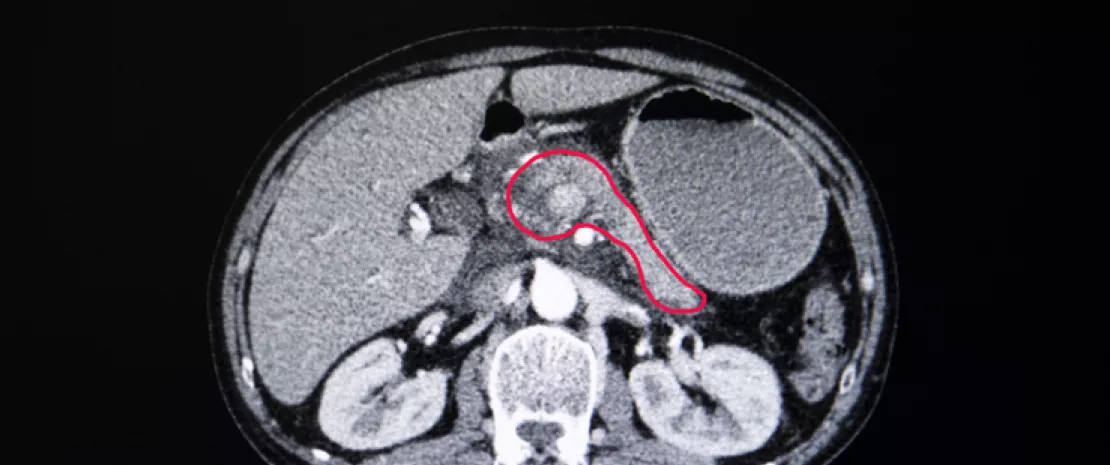Pancreatic cancer: could duodenal fluid be a risk marker?
The microbiome of duodenal fluid could be a risk marker for determining patients at risk of developing pancreatic ductal adenocarcinoma (PDAC), an extremely aggressive cancer type. This creates hope for earlier detection of the disease.
Lay public section
Find here your dedicated section
Sources
This article is based on scientific information

About this article
The third most common cause of cancer-related death in the United States, with a survival rate of 9% at 5 years, PDAC is a dreaded form of cancer. Previous studies have shown that the tumor microbiota of PDAC patients contains bacteria normally present in the upper gastrointestinal tract thought to have migrated from the duodenum. If this is the case, the duodenal fluid could be a representative biospecimen for determining microbiome profiles of patients with PDAC or at risk of developing PDAC. Hence this monocenter case-control study comparing the bacterial and fungal profiles of duodenal fluid collected from patients undergoing a duodenal endoscopy, including 134 normal pancreas (controls), 98 patients with pancreatic cyst(s) and 74 patients with PDAC.
Dysbiosis in PDAC patients
The duodenal fluid of PDAC patients had higher levels of bacterial and fungal DNA than that of controls, even after adjusting for age, tobacco use and (sidenote: Proton Pump Inhibitors ) use. In addition, PDAC patients had reduced microbial diversity, with the Bifidobacterium genus more abundant. Furthermore, Fusobacterium, Rothia and Neisseria were more abundant among PDAC patients whose survival was short.
The effect of PPIs should not be overlooked: in the controls, regular PPI use reduced microbiome diversity. PPI treatments were also associated with an increase in predominantly oral bacteria such as Streptococcus or Fusobacterium, with the latter linked to several types of cancer, including PDAC.
Alteration of the mycobiome
Duodenal fluid bacterial profiles were not significantly different between controls and patients with pancreatic cyst(s). On the other hand, the mycobiomes of these two groups did differ: patients with pancreatic cyst(s) had fewer Basidiomycota and Malassezia and more Ascomycota. At the same time, the PDAC patients had a lower abundance of Saccharomyces than the patients with pancreatic cyst(s).
Stratifying the cancer risk?
The study therefore suggests different duodenal fluid bacterial and fungal profiles for PDAC patients, patients with pancreatic cysts and those with a normal pancreatic function. These characteristic dysbioses open up the possibility of defining profiles that better stratify the risk of pancreatic cancer in patients under pancreatic surveillance. Broader studies that include other populations and regions will be required to draw definitive conclusions.






